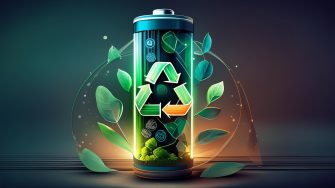Storage Technologies at UNSW
Striving towards 1,000GWh of beneficial storage in Australia by 2050.
Striving towards 1,000GWh of beneficial storage in Australia by 2050.

UNSW is striving towards 1,000GWh of beneficial energy storage in Australia by 2050.
We believe this level of storage will underpin a healthy society by promoting a resilient and sustainable energy system. Resilience means providing electrical energy more reliably, by accommodating variable generators and unplanned damage to grid infrastructure. Sustainable means a system that requires less or cleaner materials and promotes resource stewardship. To achieve this goal, we are focused on research and development in four key areas:
UNSW leads the ARC Research Hub for Integrated Energy Storage Solutions, which is a nationally significant program of collaborative research that applies a highly integrated systems-based approach, focusing not just on energy storage technologies and solutions (batteries, fuel cells, power-togas, virtual storage) but also on the monitoring, control, integration and optimisation of storage systems. UNSW has partnered with the Fraunhofer Institute for Chemical Technology to form CENELEST, a German-Australian alliance for stationary energy storage. UNSW also leads the ARC Research Hub for Microrecycling of Battery and Consumer Wastes, which is recovering valuable materials from waste batteries (with 90% going to landfill) and other wastes to help create national materials sustainability and accelerate efforts to reduce emissions.

Flow batteries are the likely to be the most commercially viable technology for long duration energy storage in Australia. Vanadium redox flow batteries are particularly promising given the electrolyte’s sustainability, durability and recoverability. Australia has some of the richest vanadium deposits in the world. The technology is proven and is ready to scale. We need to build a 10-20MWh demonstration plant, coupled with a neighbouring research facility. With this in place, we will be on track able to deliver a suite of 1-10GWh plants by 2030 that can support our major cities, future industry and regional and remote communities. UNSW holds world class expertise and facilities in Vanadium Redox Flow Batteries, which were invented by UNSW Emeritus Professor Maria Skyllas Kazacos and co-workers in 1985.